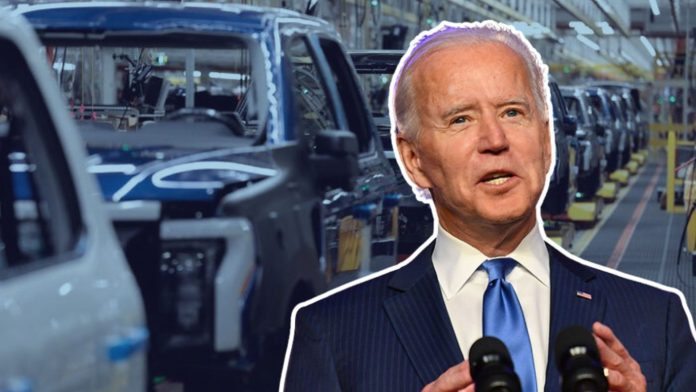The Biden administration released electric vehicle tax credit regulations restricting Chinese imports. However, by reducing the number of vehicles that meet the $7,500 federal tax credit requirements, the regulations may impede the United States’ shift away from fossil fuels.
The much-awaited guidelines regarding tax credit eligibility symbolize the complex path the Biden administration has taken to further its aggressive climate agenda and challenge Chinese hegemony over batteries and vital minerals required to accelerate the shift to EVs. However, the proposal is set to become final in January 2024, following a 30-day public feedback period.
In the Inflation Reduction Act, Congress has included a provision that restricts EVs from receiving the full tax credit if a foreign entity of concern produces essential minerals or other battery components. The law defines “foreign entity of concern” as any business owned, controlled, or subject to the laws of North Korea, Russia, China, or Iran. The provision applies to any business from the mentioned countries, although its primary target is China.
Furthermore, the regulations prohibit a car from getting the credit if even one of its suppliers has loose ties to Beijing, such as manufacturing parts in China or controlling as little as 25% of board seats. The new rules prohibit American providers from receiving credit if they rely solely on technology licensed from China.
The move occurred months after a previous Treasury regulation on local manufacturing prevented many cars made by South Korean, Japanese, and European automakers from being eligible for the tax credit. Less than one-fifth of the more than 100 vehicles available on the market—roughly 22 electric and plug-in hybrid cars—qualify for the credit.
In a letter to Treasury Secretary Janet Yellen dated Nov. 13, Democratic Senator Joe Manchin stated that China “has routinely shown a blatant disregard for fair competition, unfairly leveraged state-sponsored investments, and wielded their market domination in key industries as a cudgel.” As per Manchin’s letter, China is responsible for producing almost 76% of lithium-ion battery cells, 92% of anodes, and nearly three-quarters of cathodes worldwide.
However, the dispute over Ford’s proposal to construct a plant in Michigan that would employ 1,700 people to produce batteries for both new and old EVs illustrates the intricacy of the regulations. According to Ford, the factory and its workforce would be owned by a wholly owned subsidiary. However, technology, some equipment, and labor would be supplied by CATL, a Chinese company recognized for its proficiency in lithium-iron-phosphate.




